About
We are chemists, physicists, mathematicians, engineers, biologists who work alongside to design bionic units that mimic specific biological functions and/or introduce operations that do not exist in Nature. We apply a constructionist approach where we mimic biological complexity in the form of design principles to produce functional units from simple building blocks and their interactions. We called such an approach: Molecular Bionics.
We are engaged in several activities involving the synthesis and characterisation of novel hierarchal materials whose properties are the result of the holistic combination of its components:
Molecular Engineering
We combine synthetic and supramolecular chemistry to tune inter/intramolecular interactions and self-assembly processes to form dynamic soft materials whose molecular, supramolecular and mesoscale structures are tuned and fit for the final application (pictured right: molecular engineering of nanoscopic structures starting from molecule passing to polymers and finally to supra molecular structures).
Physical Biology
Our materials are designed to interact with living systems and thus its biological activity is studied in high detail. We have developed and established new methodologies to study living systems and how synthetic materials interact with them combining holistically physical and life sciences (Physical Biology).
Synthetic Biology
Both know-hows are applied to study biological organisation and complexity creating synthetic surrogates that act as models, as well as to engineer novel sophisticated ways to interact with living organisms.
Somanautics
In analogy to medical bionics, where engineering and physical science converge to the design of replacement and/or enhancement of malfunctioning body parts, we take inspiration from viruses, trafficking vesicles and exosomes to apply molecular engineering to create nanoscopic carriers that can navigate the human body (Somanautics) with the final aim to improve drug delivery or create new diagnostic tools.
Visit our external website to find out more.
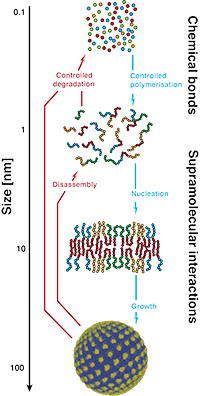


Staff
Giuseppe Battaglia
Projects
| INTERNATIONAL GRANTS | FINANCER | PI |
|---|---|---|
| CheSSTag · Chemotactic Super-Selective Targeting of Gliomas (2020-2023) | European Comission / ERC-CoG | G. Battaglia |
| NATIONAL PROJECTS | FINANCER | PI |
|---|---|---|
| BrainPePN · Nanomedicinas de precisión que penetran el cerebro (2021-2024) | MICIU / Retos investigación: Proyectos I+D | G. Battaglia |
| FUNDRAISING PROJECTS | FINANCER | PI |
|---|---|---|
| A por la COVID-19 (2021-2022) | IBEC / Faster Future 2020 | G. Battaglia |
Publications
Check for more detailed information on the outputs of the Group at IBEC CRIS portal.
Publications list:
Equipment
- State-of-the-art facilities for cell culture including 5 class A cell cabinets: one dedicated for LPS and RNAse free cell culture and one dedicated for infected tissues
- Fluorescence Activated Cell Sorting (FACS)
- Confocal microscope to perform live cell 4D imaging
- Thermocycler
- Real-time PCR
- Automated Western Blot
- Gel Permeation Chromatography
- High-Performance Liquid Chromatography
- Ultra Performance Liquid Chromatography equipped with fluorescence, UV/Vis and Infrared and light scattering detectors
- Dynamic light scattering unit
- Nanoparticle tracking analysis
- UV and Fluorescence spectroscopy
- Automated liquid handling units
- Nanoparticle production units
Collaborations
- Xavier Salvatella
IRB Barcelona - Francesca Peiro
Physics-University of Barcelona - Kostas Kostarellos
Life Science- University of Manchester/ICN2 - Giorgio Volpe
Chemistry-UCL - Simona Parrinello
Cancer Institute -UCL - Finn Werner
Structural Biology -UCL - Nick Lane
Evolutionary Biology -UCL - Darren Hargraves
Pediatric Neuro-Oncology -UCL - Timothy McHugh
Clinical Microbiology =UCL - Sebastian Brander
Neurology -UCL - Joan Abbott
Physiology -King’s College London - Molly Stevens
Bioengineering -Imperial College London - Stefano Angioletti-Uberti
Materials Science -Imperial College London - Ricardo Sapienza
Physics -Imperial College London - Daan Frenkel
Chemisty-University of Cambridge - Charlotte Williams
Chemistry -University of Oxford - Francesco Gervasio
Pharmacology -University of Geneve/UCL, UK - Francesco Stellacci
Bionegineering -EPFL Switzerland - Tambet Tessalu
Cancer Biology -University of Tartu (Estonia)/ Sanford Burnham Prebys Medical Discovery Institute - Darrel Irvine
Bioengineering -MIT - Xiaohe Tian
Life Sciences University of Anhui - Yupeng Tian
Chemistry University of Anhui - Lei Luo
Pharmacy -Southwest University, China - Kai Luo
HuaXi hospital Sichuan University - Darren Hargrave
Great Ormond Street Hospital, UCLH London - Sebastian Brander
Queen Square National Centre for Neurology, UCLH London
News
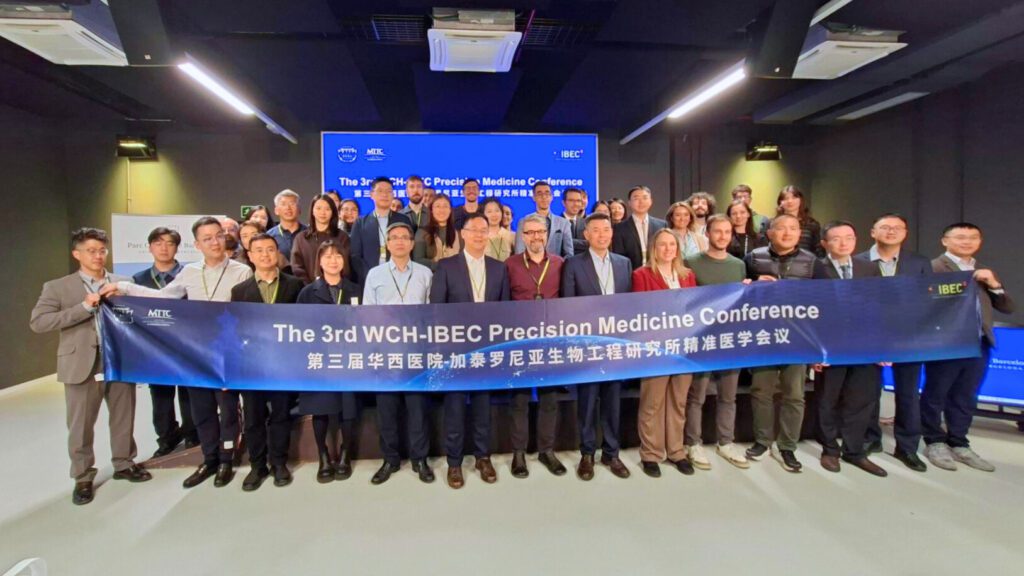
El IBEC y el Hospital West China celebran en Barcelona su tercera Conferencia conjunta de Medicina de Precisión
Esta semana ha tenido lugar en Barcelona la tercera Conferencia de Medicina de Precisión IBEC-WCH, un encuentro que consolidó la alianza estratégica entre el Instituto de Bioingeniería de Cataluña (IBEC) y el Hospital West China de la Universidad de Sichuan (WCHSU). La delegación china visitó España del 26 al 29 de noviembre, participando en un programa intensivo de actividades científicas, institucionales y de intercambio entre ambos centros.
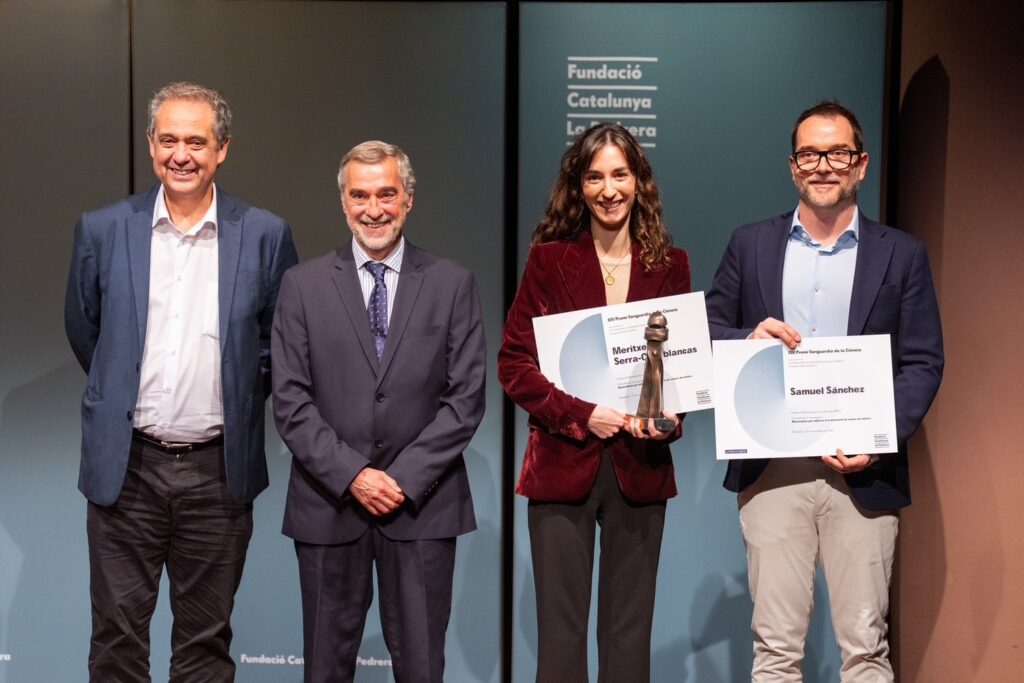
Una investigación del IBEC gana el 3r Premio Vanguardia de la Ciencia 2025
Un estudio liderado desde el IBEC ha sido galardonado con el 3r Premio Vanguardia de la Ciencia 2025. La investigación, que tiene como primera autora a Meritxell Serra-Casablanca y como líder a Samuel Sánchez Ordoñez, propone una terapia innovadora contra el cáncer de vejiga basada en nanorrobots cargados con radiofármacos, capaces de desplazarse por la vejiga aprovechando la orina como fuente de energía.
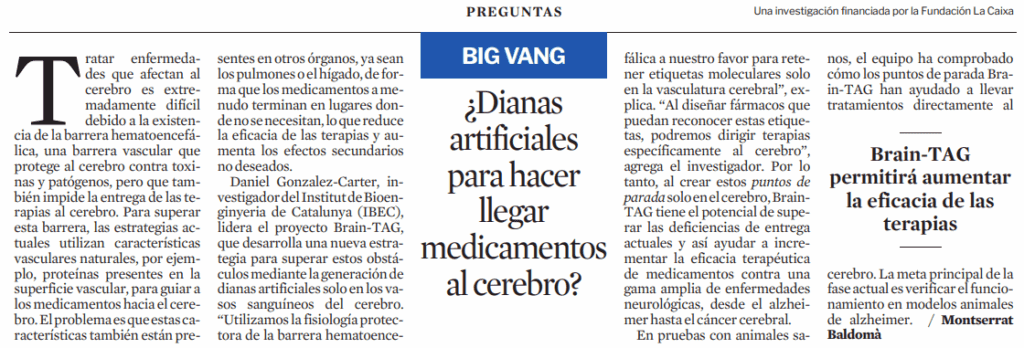
LA VANGUARDIA: ¿Dianas artificiales para hacer llegar medicamentos al cerebro?
Daniel Gonzalez-Carter, investigador del Instituto de Bioingeniería de Catalunya (IBEC), lidera el proyecto brain-TAG.
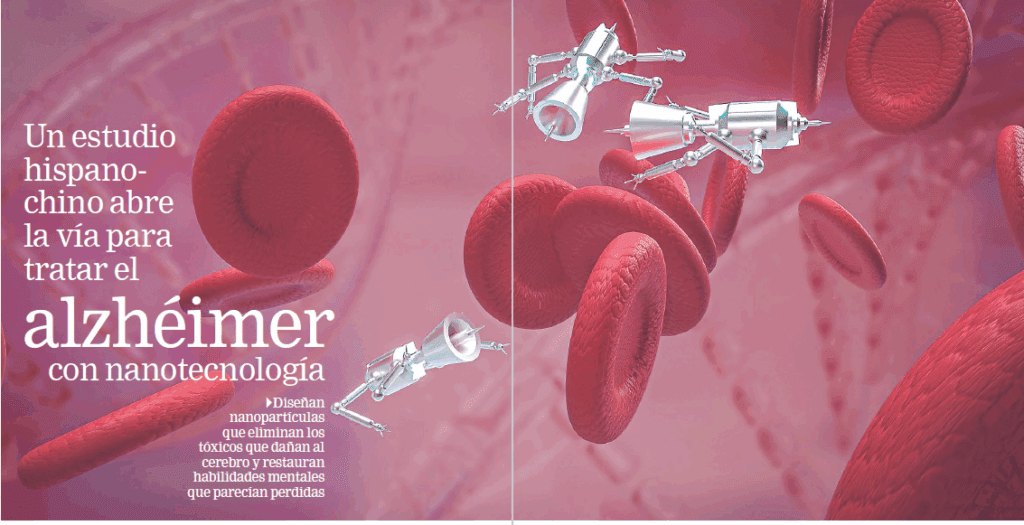
La Razón: Un estudio hispano-chino abre la vía para tratar el alzhéimer con nanotecnología
Diseñan nanopartículas que eliminan los tóxicos que dañan al cerebro y restauran habilidades mentales que parecían perdidas.

El IBEC, uno de los centros seleccionados por la Fundación Pasqual Maragall para sus ayudas a la investigación
Amaya Hernández-Vega, a senior researcher at IBEC, will lead one of the two projects selected in the 2024 call for proposals from the Pasqual Maragall Research Programme, which is dedicated to funding research into Alzheimer’s disease and other neurodegenerative conditions. IBEC also celebrates the participation of Jordi Duran, an associate researcher from the Molecular and Cellular Neurobiotechnology group, who will collaborate on the second selected project.
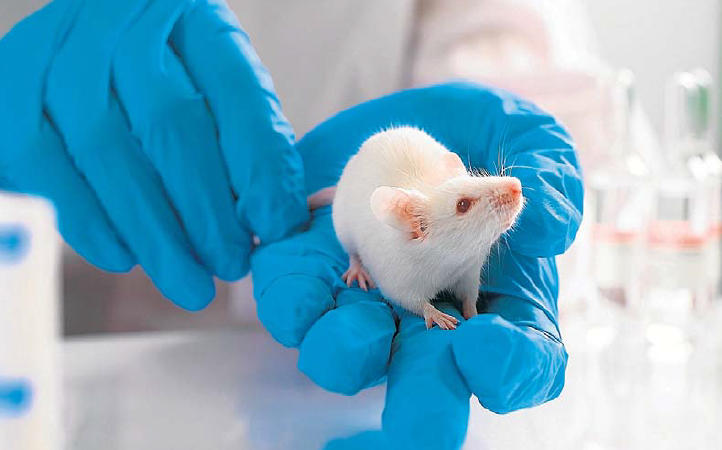
ARA: Una injecció reverteix símptomesde l’Alzheimer en ratolins
L’administració de nanopartícules permet netejar toxines del cervell
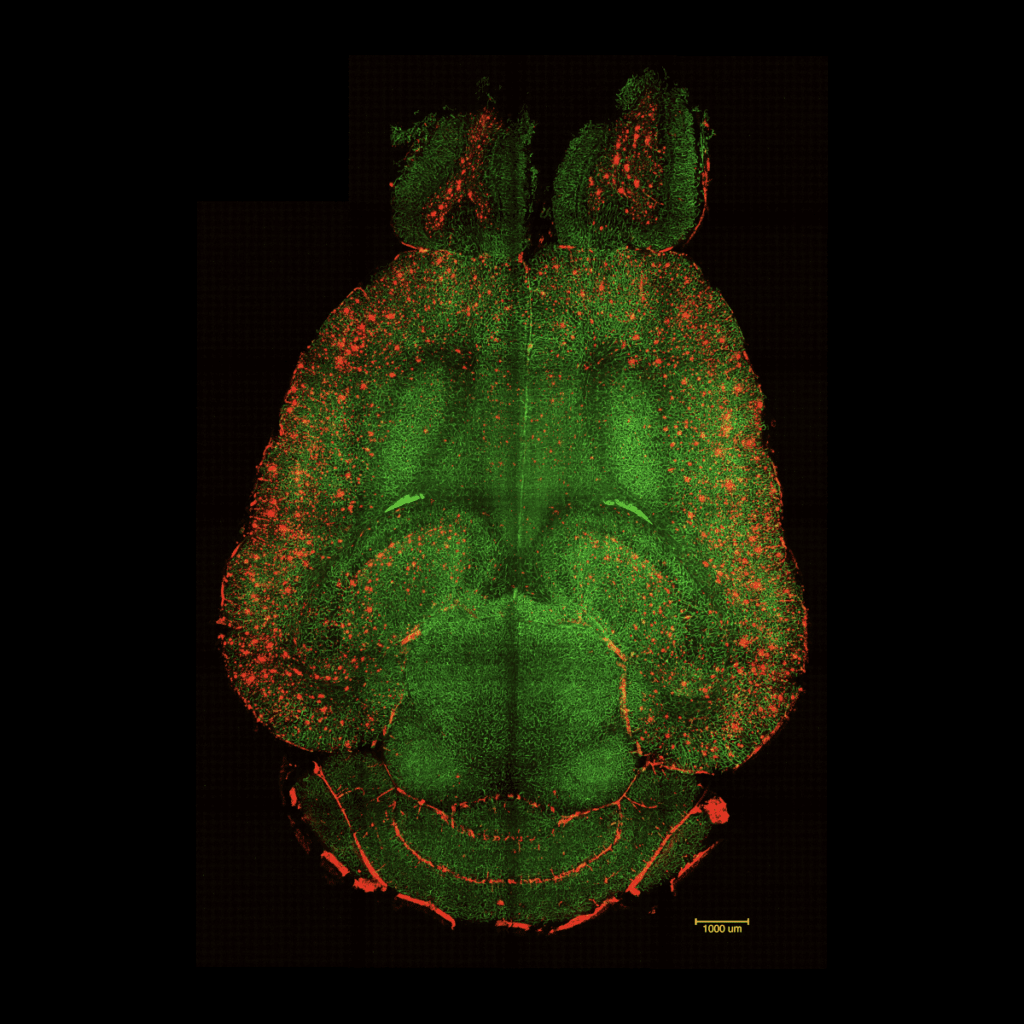
EL PERIÓDICO: Científicos de BCN y China revierten el alzhéimer en ratones
Diseñan una novedosa técnica centrada en restaurar la salud vascular con inyecciones de nanopartículas. «En una hora se han empezado a ver resultados».
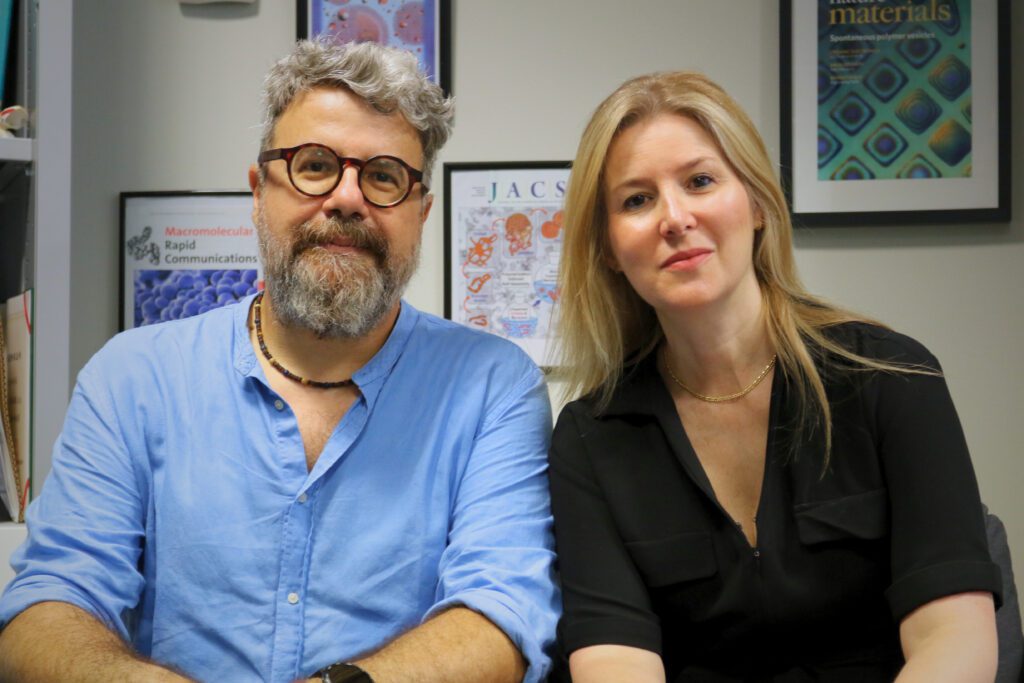
Consiguen revertir el alzhéimer en ratones con el uso de nanopartículas
Un equipo internacional codirigido por el Instituto de Bioingeniería de Cataluña (IBEC) y el Hospital West China de la Universidad de Sichuan (WCHSU) pudo revertir el alzhéimer en ratones después de solo 3 inyecciones con nanopartículas. El enfoque innovador para tratar la enfermedad se centra en restaurar la función normal del sistema vascular, en lugar de actuar sobre las neuronas u otras células cerebrales, como se ha hecho habitualmente hasta ahora. Este logro, publicado en la revista Signal Transduction and Targeted Therapy, es un paso prometedor hacia un tratamiento eficaz para la enfermedad de Alzheimer.

New York Post: Alzheimer’s breakthrough? Scientists use nanotech to reverse disease in mice
A new study reveals innovative nanotechnology that restored the function of the blood-brain barrier (BBB) to reverse Alzheimer’s in mice.
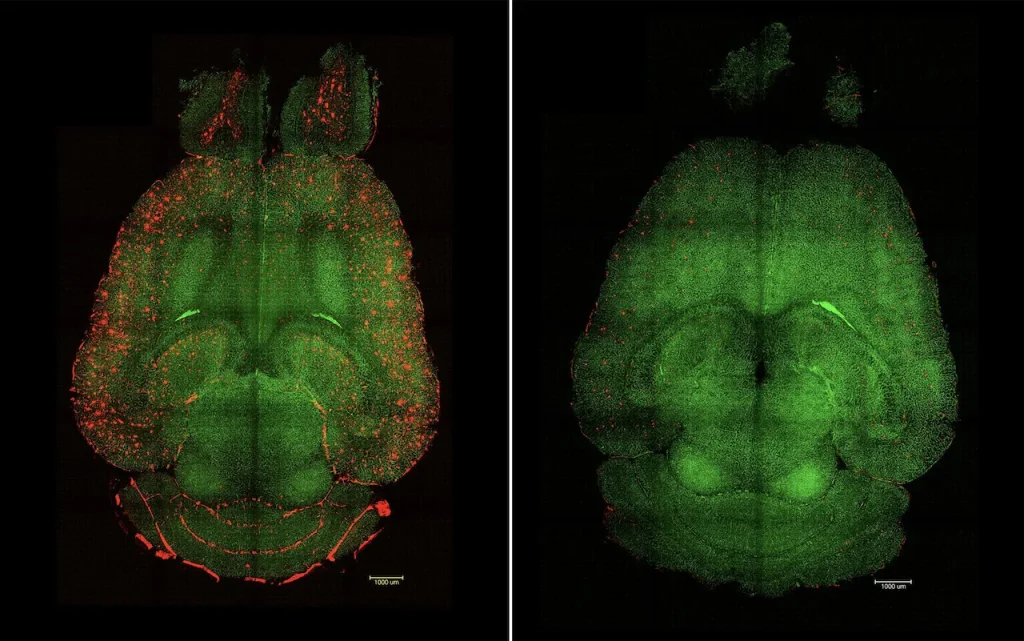
The Telegraph: Alzheimer’s reversed in mice under breakthrough treatment
Injection of nanoparticles “reminds” blood-brain barrier to work properly, allowing brain cells to communicate again
Jobs
Predoctoral researcher at the Molecular Bionics Research Group (Project TauiST)
Ref: FPI_GB // Deadline: 29/10/2025
Postdoctoral Researcher at the Molecular Bionics Research Group
Ref: PR_GB // Deadline: 11/08/2024
Postdoctoral Researcher at the Molecular Bionics Research Group (PD_GB)
Ref: PD_GB // Deadline: 24/05/2024
Senior Laboratory Technician at the Molecular Bionics Research Group (SLT_GB)
Ref: SLT_GB // Deadline: 24/12/2023
Research Assistant at the Molecular Bionics Research Group (RA_GB)
Ref: RA_GB // Deadline 12/12/2023
Part-time lab manager (Tissue Engineering) in the Molecular Bionics Group (LM_GB)
Ref: LM_GB // Deadline: 31/08/2023

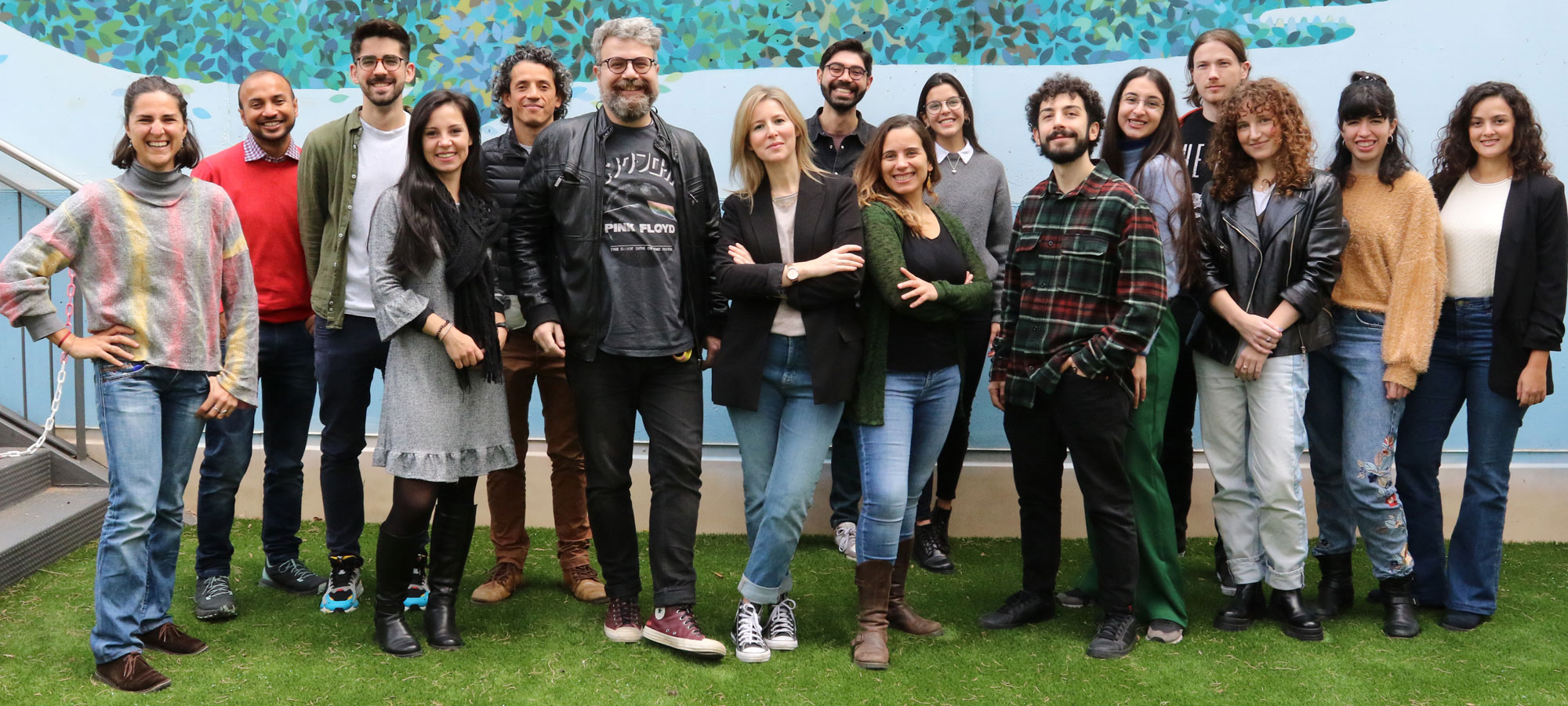
 ibecbarcelona.eu
ibecbarcelona.eu